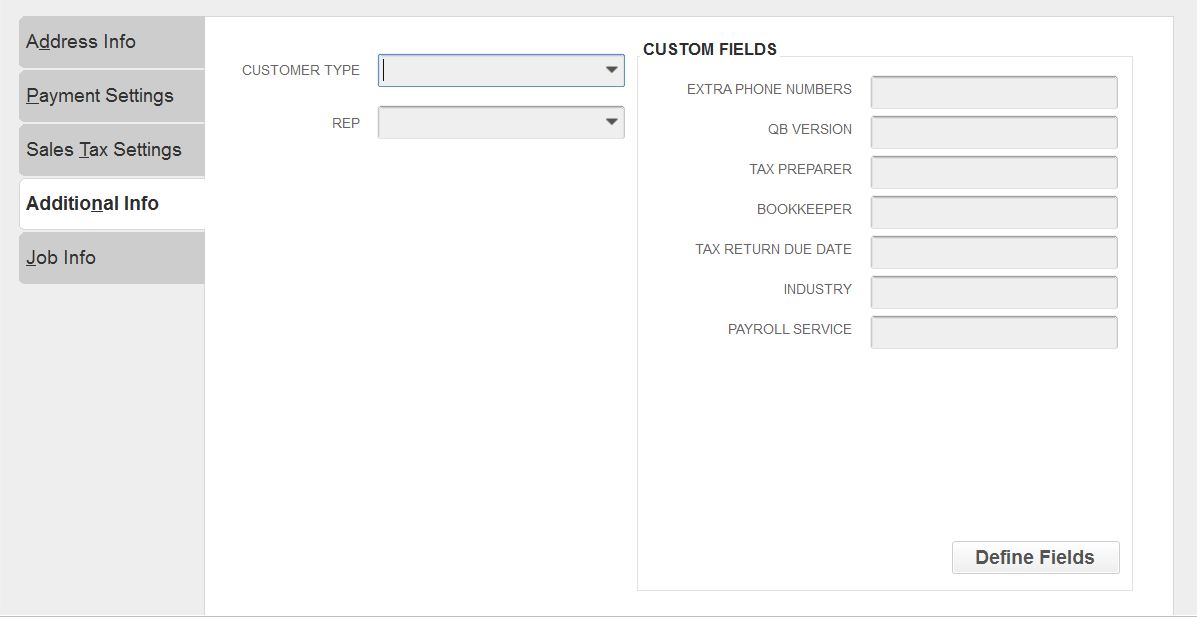Using Custom Fields in Your Accounting Software
 Custom fields in your accounting software are data fields that you can define yourself. They are typically associated with customers, vendors, employees, and items, and they can help you store and categorize additional information about these stakeholders and your products and services in your business.
Custom fields in your accounting software are data fields that you can define yourself. They are typically associated with customers, vendors, employees, and items, and they can help you store and categorize additional information about these stakeholders and your products and services in your business.

Custom Fields in QuickBooks Desktop
An example custom field that can be associated with customers is their anniversary date with you. You could also decide to store their birthday, their spouse’s name, their favorite color, or their shoe size.
Custom fields add functionality to your accounting system. Here are a few examples of practical uses for custom fields:
- Contact for customer – if customers are assigned a particular team member, you can add their name in a custom field
- Frequency of service – daily, weekly, monthly
- Warehouse location
- Type of customer; for example, non-profit, construction, retail, restaurant
- Referral Source
- Preferred method of contact: email, phone, fax, text, chat
- License number
Our customer custom fields track which version of QuickBooks you use, what payroll service is active, who your tax preparer is, etc. Then we can sort on any one of these fields.
Some software allows you to choose the type of custom field you want to add. In some cases, this allows for cleaner data as the data can be limited to a certain type or certain values upon entry. Here are the most common types:
- Free form text – this is the default type; it can come as a single line or paragraph
- Check box – choose one or more values from a limited number of choices
- Radio button – choose only one value from a limited number of choices
- Drop down – choose a value from a dropdown list
- File upload – add an attachment
- Image upload – upload an image that will be displayed
- Date/time – enter a date or time
- Number – enter a number; it can be currency, integer, or another mathematical type of number
Custom fields allow you to meet your company’s unique needs over and above what the software provides by default. It’s a great way to make your data more meaningful. If you have some ideas for custom fields in your accounting software and want help setting them up, feel free to give us a call anytime.
 New Business Direction LLC
New Business Direction LLC